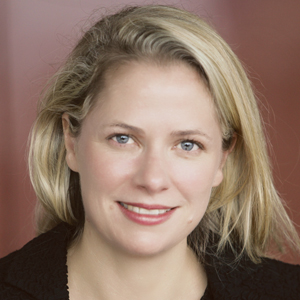Senior Clayton Utz partner Kate Jordan describes how micro-loans as small as $25 are changing women’s lives in countries like the Philippines – and how we can help.

Senior Clayton Utz partner Kate Jordan describes how micro-loans as small as $25 are changing women’s lives in countries like the Philippines – and how we can help.
Good Return is an initiative of World Education Australia, a pro bono client of Clayton Utz. I have the privilege of being on its board and recently travelled to the Philippines with a group of 12 Australian women and one man, and spending four days visiting villages where Good Return and its local microfinance partner SECDEP run programs. With loans as small as $25, they help mostly women in the Asia Pacific build businesses to lift themselves and their families out of poverty. We also embarked on a four-day trek up Mt Madjaas.
Our group included Fran Rush, a banking partner at Clayton Utz; Di Ryall, former managing director of Apple Australia; Julia, a gem from Karratha who had to get her first passport to make the trip; Debbie, who provides self-defence training to victims of domestic violence in Perth; and Sarah, the only real trekker among us.
We also had the amazing Sandra from Good Return and Kristen from Inspired Adventures with us. They put their hearts and souls into this trip and turned it into an adventure – and learning experience – of a lifetime.
Hope is the key – and education
Everywhere we went, the communities were incredibly supportive of each other. Despite the poverty and challenges, we never sensed despair. Quite the contrary. The women were resolute and full of hope. They often became emotional speaking about the academic achievements of their children, proudly whipping out their children's school report cards. My children would kill me if I did that!
In each village where the microfinance and educational programs are operating, there is a centre house. The centre house is the physical embodiment of the community. It is the place where the women come together each week to talk about the loans they are going to seek, to repay their loans, to get further education and training and to share their challenges and their triumphs.
At these centre houses, we heard the same message, time and again. The women are chiselling away at the poverty surrounding them. They are using microfinance – and the education and training they are receiving – to pay for their children's education and keep them in school. They view education as the ticket to a life without poverty for their children.
No secret women’s business
While it was the women coming together at the centre house, it was clear that their husbands and families were actively involved and engaged too. This was not secret women's business.
On the island of Guimaras, we sat in on a savings and mentoring session run by a woman in her early 20s. She had been trained by the team at SECDEP, who in turn had been trained by Good Return.
An older woman among the attendees asked how she could she be expected to save when her income was so low (only about A$1 per day) and her basic living costs so high. I thought the village trainer would empathise with the older woman's predicament and agree that saving was impossible for her. But no. She replied – with humour, respect and determination – that the older woman needed to change her livelihood or find an additional livelihood so she could increase her income and give herself the ability to save.
I am still trying to process the sensory overload that was the Philippines, but I know I witnessed leadership in spades. One example that stands out is that village trainer. With her well-honed listening skills, she was able to engage, educate and influence the women in her village, seemingly effortlessly. I think she inspired them, and she certainly inspired us. I have no doubt that her pre-school aged daughter, who was with her at the session, will not lead a life of poverty.
The opportunity to triumph
A group photo was taken at one of our meetings. Someone held up a small sign bearing a quote from Oprah. Its message summed up the attitude of the people we met in the Philippines:
"It doesn't matter who you are, or where you come from. The ability to triumph begins with you. Always."
The work of Good Return and its partners is powerful. They are creating opportunity. The recipients of that opportunity are, to borrow the words of Sheryl Sandberg, leaning in, on behalf of their families and communities. When this opportunity is combined with determination, resourcefulness and most importantly, love, people are lifting their families out of poverty. There is nothing more triumphant than that.
If the poorest of the poor can support each other so they can change their lives, then surely we too can support them and each other, and find a way to bring about change. It is one piece of the puzzle, but an important one.
Good Return's next trip is the "Pedal to End Poverty" in March 2015. For more information, visit the website.
Kate Jordan (pictured) is the Sydney partner in charge at Clayton Utz